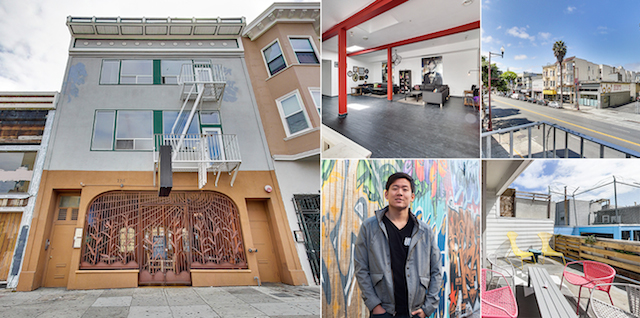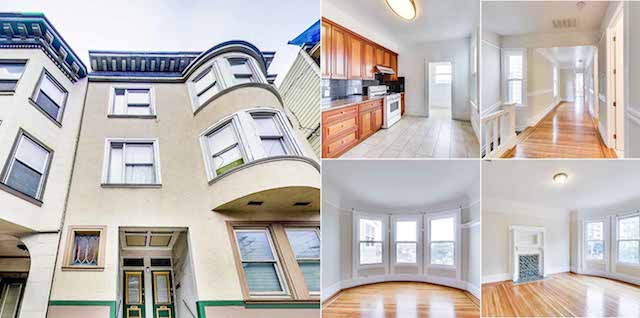Tom Currier, the 23-year-old CEO and co-founder of Campus, believes in Maslow's hierarchy of needs. With housing, safety, and even pots and pans provided for members of his unique co-houses, residents can focus on forming fulfilling friendships, mostly with people they've just met.
Campus is an investment-backed property management startup with 20 houses in the Bay Area and four in New York, all fully remodeled, furnished, and spacious, many of them with yards and hot tubs. Houses range from four to 24 residents, for whom almost everything is taken care of, including the little stuff like a full spice rack and a bottomless supply of olive oil.
That's in exchange for a small membership fee and rent somewhere between $1,000 to $2,200 per month for a sizable single or shared room. Conflict resolution, if necessary, is provided by Campus employees, and Campus membership currently comes with shared access to Tahoe and Napa vacation houses. Everyone's month-to-month, and everything from repairs to professional cleaning to toilet paper is provided by Campus employees so that residents, says Currier, can meet those higher level needs.
"In college, all your needs are met, and that's one of the happiest times in your life," he told me in a tony Tenderloin co-working space. But he doesn't think that experience needs to apply just on traditional college campuses, nor does that experience need to end there.
Currier himself left Stanford's physics program after his sophomore year when he earned a $100,000 Thiel fellowship. Eventually in East Palo Alto, where he worked on his first startup, Currier joined friends at Black Box Mansion, a community house for startup builders in Atherton. From that he drew inspiration for Campus, where he now lives in the eight-person Noe Valley Campus house.
But what would Currier, a 23-year-old landlord of sorts, be doing living among his flock of tenants? "We don't own the property," he clarified earlier for CMX, "That would become prohibitively expensive. We're much more like Airbnb, an interface and the organizing force behind the community living."

The matter of who the company caters and markets to, however, is spurring a current identity crisis of sorts at Campus. The company is mulling a name change in the coming months in order to avoid being pigeonholed as purely for recent grads. Currier says Campus is for anyone, though he admits after some pressing that perhaps couples with newborns might want to "own their own space." Naturally, he's particularly sensitive to any hint of age discrimination, which would be illegal.
Though Campus members have diverse interests, backgrounds, and even nationalities, right now they are predominantly recent college graduates between 22 and 24 who just moved to San Francisco. And since this is San Francisco in 2015, many of them work in tech, at large companies and small startups.
Given that, the vibe around Campus houses is one of both networking and new-friend-making, not unlike a dorm.
Jordan Bennett, who has lived in one of Campus' houses for three months, heard of the Campus community through a friend who was already a member. "It was so great," she told me. "It's a little nerve racking to move to a new city, so to come to San Francisco and have a community that was already set up made me feel more comfortable making the move, and I've met people that I would have never met otherwise."
Bennett lives in one of the smallest Campus houses on the hyper-desirable block of 18th Street between Mission and Valencia. "My roommates are all in different occupations, and it's been great to learn from them," she says. "We've created our own little family in the Mission, and Campus does a great job with Campus wide events, where you meet members from different houses." One of the most popular was a Dolores Park party thrown by the company with free burritos and dancing. Events like this, plus communal dinners and game nights, are all a part of the Campus lifestyle.
To learn more about the company, I decided to go through the campus application process myself. It's pretty thorough, with residents making their own decisions on on the basis of what Currier calls "personality fit." There's an initial video conference call, where in my case not one but two Thiel fellows were on the line. Then there are open houses with pizza and beer for current housemates to meet candidates in a friendly, speed-dating atmosphere.
Each house defines its culture in terms of shared goals and "Typical Conversation Topics," listed on the Campus website. "Sports, travel, entrepreneurship" for one, "business, startups, food and cooking, exercising, travel, and outdoors activities," at another, "film, music, culture, and design," at a third.
Currier claims that "even entrepreneurs don't always want to live with entrepreneurs." One member writes on a bio on Campus' website, "I love that even though we are all so different and have come from all over the world, we've somehow bonded quickly as a family under one roof."
Campus has critics, such as the Anti-Eviction Mapping project who call such living arrangements "digerati dorms." Long has it been feared that San Francisco might become a dormitory for tech workers, and some may see Campus as that nightmare come true. Currier has already made statements assuring critics that "There's absolutely no Ellis Act stuff going on here... We are only moving into large, single-family homes, never evicting anyone. It's in our best interest as well that we keep housing affordable for everyone in the city." That said, folks like Gabriel Medina, the Mission Economic Development Agency's Policy Manager, has concerns, pointing out that between 2000 and 2012, family households in the area fell from 42 percent to 28 percent.
Currier wants Campus to keep growing, with an eye on more houses in San Francisco and expansion to more cities something that is likely to freak out everyone who is already freaking out about the rapidly changing housing landscape in SF. According to Dave Fontenot, a young Hackathon founder who dropped out of the University of Michigan and lives in the Campus house on Mission Street between 18th and 19th Streets, all of his friends already want to move to Campus. The company's rising popularity, of course, comes at a time when we hardly need to mention the housing crisis and the high price of one- and two-bedroom apartments. Living together, something that's probably always happened in San Francisco, has never made so much sense.
"I could see Campus being the majority of the housing in a city like San Francisco," Fontenot told me, "Tom has a radical vision, when I first met with him, that guy is like, even in his eyes, you can see he's on a mission to take over the world." I saw that, too, but is it the glint of a cult commune leader, or the glint of a Silicon Valley CEO?
"San Francisco values" have always made room for unorthodox housing arrangements, from co-ops and communes to co-habitating enclaves of gay men and lesbians. Are recent examples like Campus, and the somewhat similar Embassy network, the next chapter in this housing evolution, the 2015 version of the Diggers and Cockettes and all the hippie communes of the '60s and '70s? Or is the appropriation of that communal-living legacy dramatically different in an era when young urban professionals dominate the city's culture and housing market?
Campus is essentially an extension of the modern college experience, which has become marked by dorm cushiness and food quality rankings. It's also a reflection of the tech-campus culture that many new transplants experience all day, where snacks and games come standard.
Campus feels far more professional and reputable than some other recent attempts at communal living in San Francisco. Take the disastrous Negev, which has allegedly, illegally converted a fire-damaged SRO into unlivable micro-units. Then there's Embassy SF, a chain of "intentional living communities" that's even taken over residence at the historic Red Vic in the Haight. And SF is now littered with dozens of other, smaller communities like in-the-know Mission boarding house and arts space The Sub.
You might argue that this is just one example of an entrepreneur creating model, using the existing housing stock at hand, for the type of "middle-income" affordable housing for which the Mayor and seemingly everyone else keep pushing. It's a compromise, sure, but even 22-year-olds aren't going to want to live with 20+ other people forever. And this gives them a foothold in the city where few others exist, until they can face the "adult" challenges of landlords and utility bills and fights with neighbors that don't get resolved by an RA.
At worst, concepts like Campus perpetuate the myopia of young San Francisco, solving an element of the housing crisis but, in typical fashion, only for itself. When they work, though, and when they don't displace longtime, lower income residents, these are essentially just the city's freshman dorms a stepping stone before braving Craigslist all by one's lonesome. For that, there's obviously always going to be a market.
All previous coverage of modern communes on SFist.



